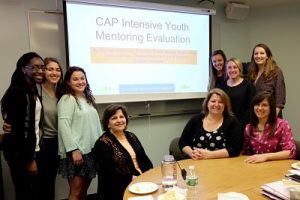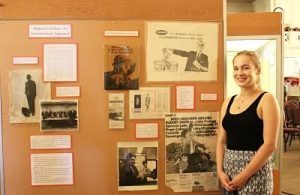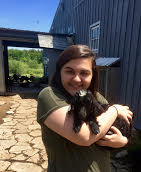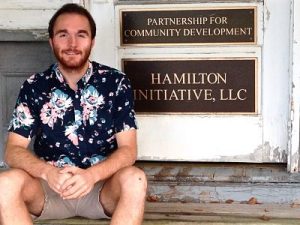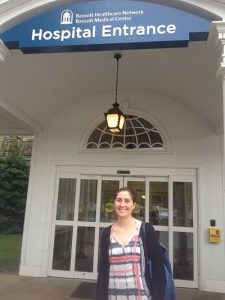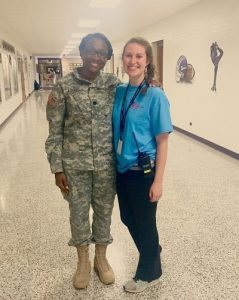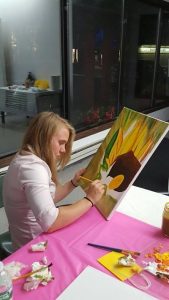Written by Holly Mascolo ’17
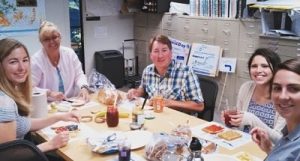
Holly Mascolo ’17 enjoying a peanut butter and jelly lunch party with co-workers
Growing up in a suburban community on Long Island, I never had to think twice about grocery shopping. I would wake up to a refrigerator full of fresh vegetables, meat, and milk. If we ever needed any more food, or to pick up something quickly, my parents would drive less than five minutes away to one of the three grocery stores within a five-minute drive from our house. I never stopped to consider a scenario different from this or to think about how fortunate I really was.
The first time I heard the phrase “food security” was my sophomore year at Colgate. Lots of communities– and in particular, low-income communities– lack access to fresh grocery items in their area. This often leaves individuals with no choice but to shop at nearby convenience stores for the quick items that they need, or to travel far distances out of their communities to shop. However, leaving the immediate area is not always a viable option for individuals, especially the elderly or those who do not have access to a car or other means of transportation. These communities where individuals lack access to fresh food and a variety of groceries are thus considered food insecure. According to the USDA (2015), food deserts are typically defined as communities that are low-income and have low-access to fresh foods, normally located one mile away from a supermarket in urban areas and ten miles in rural areas. ¹ Living in a food secure area my entire life left me fairly oblivious to this issue until I began to learn about it in my environmental studies classes at Colgate.
The issue of food insecurity can be found right in Madison County. In May of last year, the only grocery store in Morrisville closed its doors, leaving residents in the area to travel seven or more miles to the nearest grocery store in Hamilton, or further to other neighboring grocery stores. While Morrisville is not technically considered a food desert, this lack of a grocery store is seen as a problem within the community. It is especially a challenge for individuals who lack access to transportation, which means mainly the elderly, students at the nearby college, or those who struggle to travel far in the winter weather. There is a certain irony to the fact that Morrisville is nearly classified as a food desert, as there are so many farms in the local area and so many opportunities for fresh food to be purchased during the growing season in Upstate NY. However, without the retail infrastructure in place to bring food to individuals in Morrisville, it is difficult for people to access the foods that they need to lead a healthy lifestyle without leaving the community. Read more
